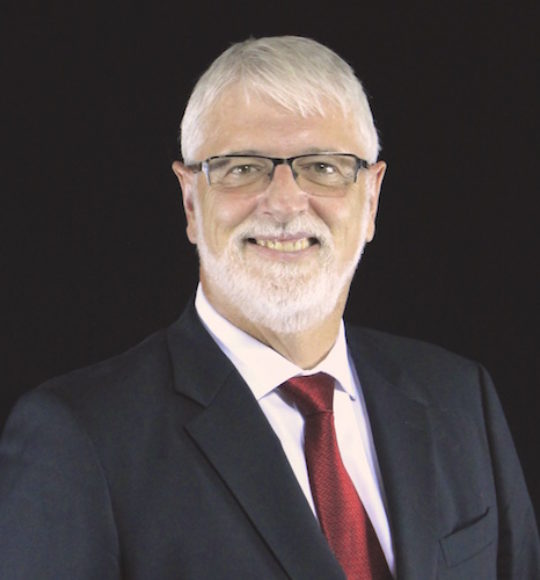The writer served as a 52nd District Court judge in Novi and assistant state attorney general. He's chief financial officer of the Justice Speakers Institute and a Deadline Detroit contributor.
By Brian MacKenzie

Retired Judge Brian MacKenzie
The people of City of Flint were poisoned. There is no evidence that this was intentional; rather Flint’s citizens were treated like numbers in an accountant’s ledger, where spending the least money was thought to be the best decision. It was when members of the Snyder administration understood that their decision was poisoning people, and then lied to protect that decision, that the corruption began.
The consequences of this corrupt decision may have killed the ten people who died from legionnaries disease and most certainly left thousands of children to suffer from lead poisoning for the rest of their lives. The unfiltered water in Flint is still not safe to drink.
Three staff members from the Michigan Department of Environmental Quality resigned or were fired. Investigations were started. A congressional committee issued subpoenas; Attorney General Bill Schuette appointed a special prosecutor. Lawsuits were filed, demands were made for documents. Gov. Rick Snyder issued an apology and then hired lawyers with taxpayer money, and then claimed executive privilege and governmental immunity to prevent the discovery of those documents.
The congressional committee on Friday closed its investigation without receiving all of the documents from the Snyder administration. The chairman of the committee generally cast blame everywhere, which in the parlance of Washington means no one was blamed.
The special prosecutor Todd Flood appointed by the Attorney General charged a number of low-level staff from the State of Michigan and one Flint employee with crimes ranging from misdemeanors to felonies. Not one of these people had sufficient authority to initiate the Flint cover up. Nor could any of these defendants create the type of systemic corruption necessary to support the effort to suppress the truth.
According to Professor Raymond Fisman, of Boston University, who is an expert on systemic corruption, “(W)hen the corruption is so widespread and severe…it becomes an integral part of…economic and political life. Once systemic corruption takes hold….it can quickly infect an entire system, encouraging or even forcing bad behavior — even by those who would, in another context, remain honest.”
In order to end political misconduct, prosecutors have to investigate corrupt officials. A serious investigation can begin to disrupt the corrupt equilibrium tipping the balance back in the direction of honest government. Christoph Stefes, a professor of political science at the University of Colorado describes this perception as creating “islands of honesty”.
Just Look at Kwame Kilpatrick
Michigan has experienced the creation of such an island of honesty before.
In 2008 Kwame Kilpatrick was preparing to run for a third term as Mayor of Detroit. The pervasive sense of corruption which surrounded his administration fueled by his spending city funds on catered meals, tickets to the Rolling Stones’ concert, Detroit Lions football games, and to lease a Lincoln Navigator for his wife, as he laid off city workers had not stopped his re-election three years earlier. The rumors of unchecked illegal activity that swirled around city hall suggested that he was stealing with impunity.
Then on March 24, 2008 Kym Worthy, the Wayne County prosecutor ended a two-month investigation, charging Kilpatrick with eight different felonies. At a press conference that morning Worthy, a member of the same political party as the Mayor, said: "Our investigation has clearly shown that public dollars were used, people's lives were ruined, the justice system was clearly mocked, and the public trust trampled on….Witnesses must give truthful testimony. Oaths mean something.”
These indictments disrupted the “corrupt equilibrium.” Shortly thereafter, then Attorney General Micheal Cox issued more charges, which were then followed by United States Justice Department indictments. Kilpatrick had to resign as Mayor and ultimately was sentenced to prison for his corruption.
Attorney General Bill Schuette faces the same choice that presented itself to Kym Worthy. He can allow the new equilibrium to take hold — one that favors dishonest dealings--or he can create an island of honesty.
On Tuesday, he took a step in the right direction when the special prosecutor brought charges against two former Flint emergency managers--Darnell Earley and Gerald Ambrose--and two additional flint employees. These new charges take the investigation one step closer to uncovering what actually happened.
This new step however, cannot end the investigation. The people of Flint need an island of honesty.











